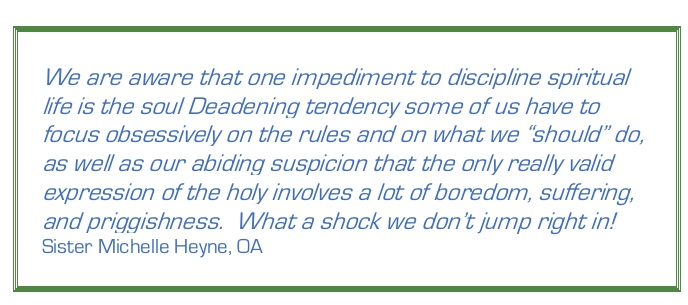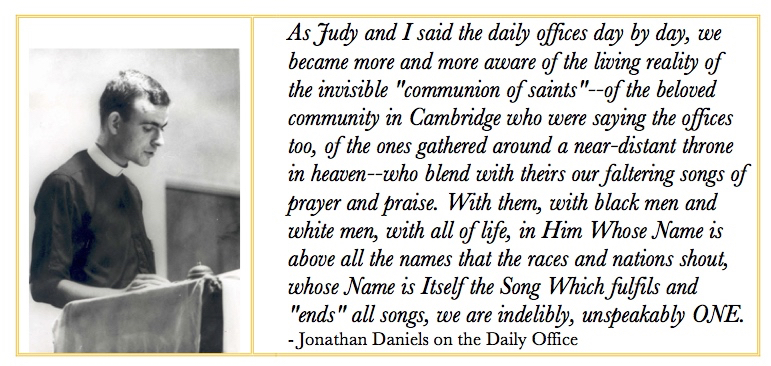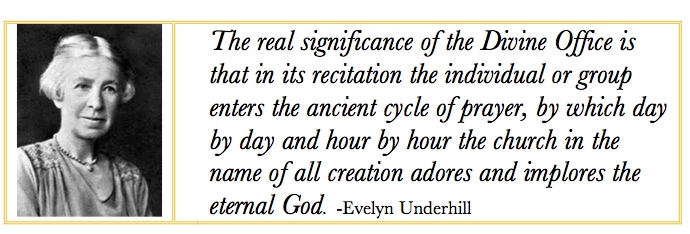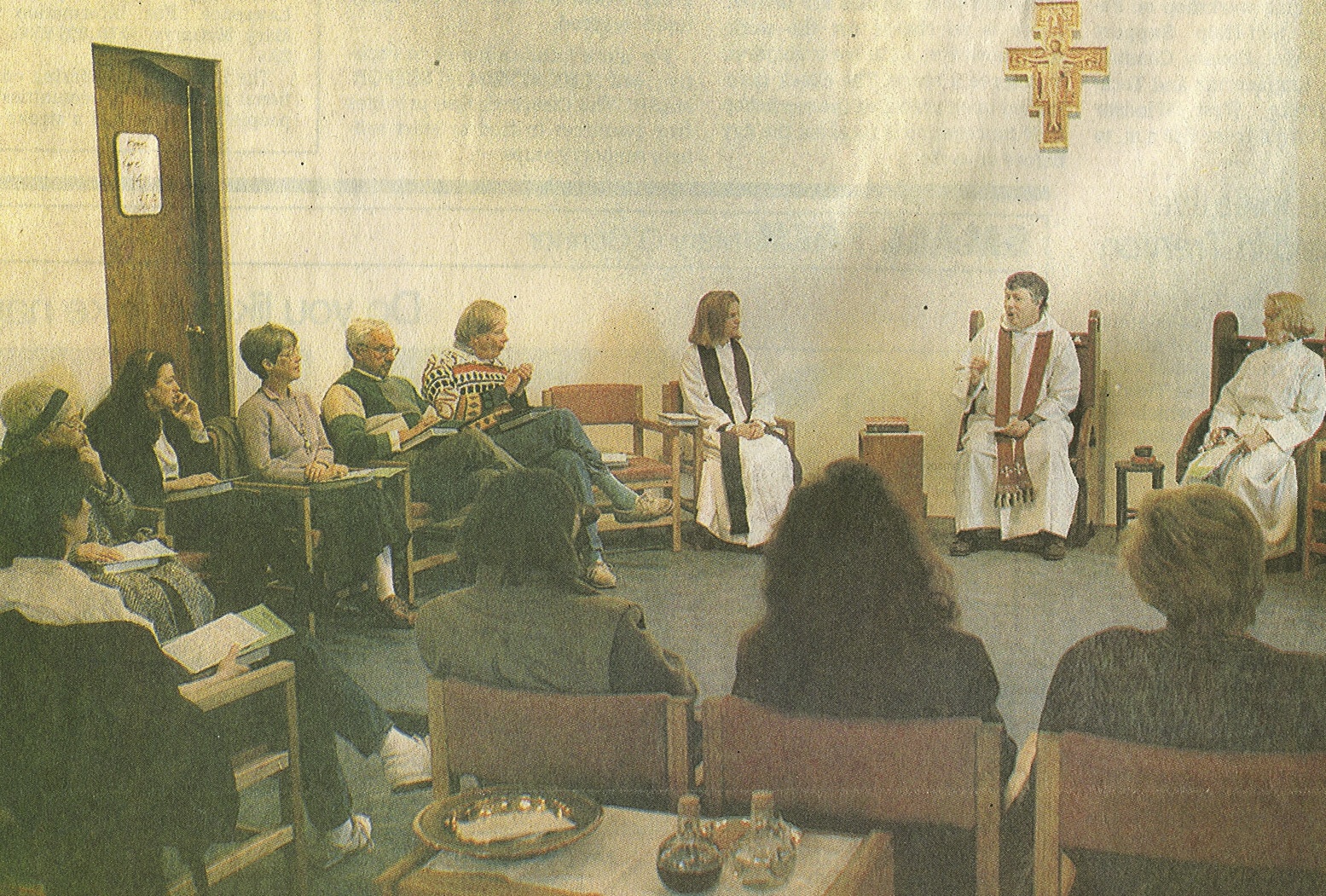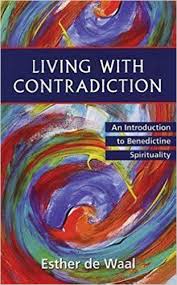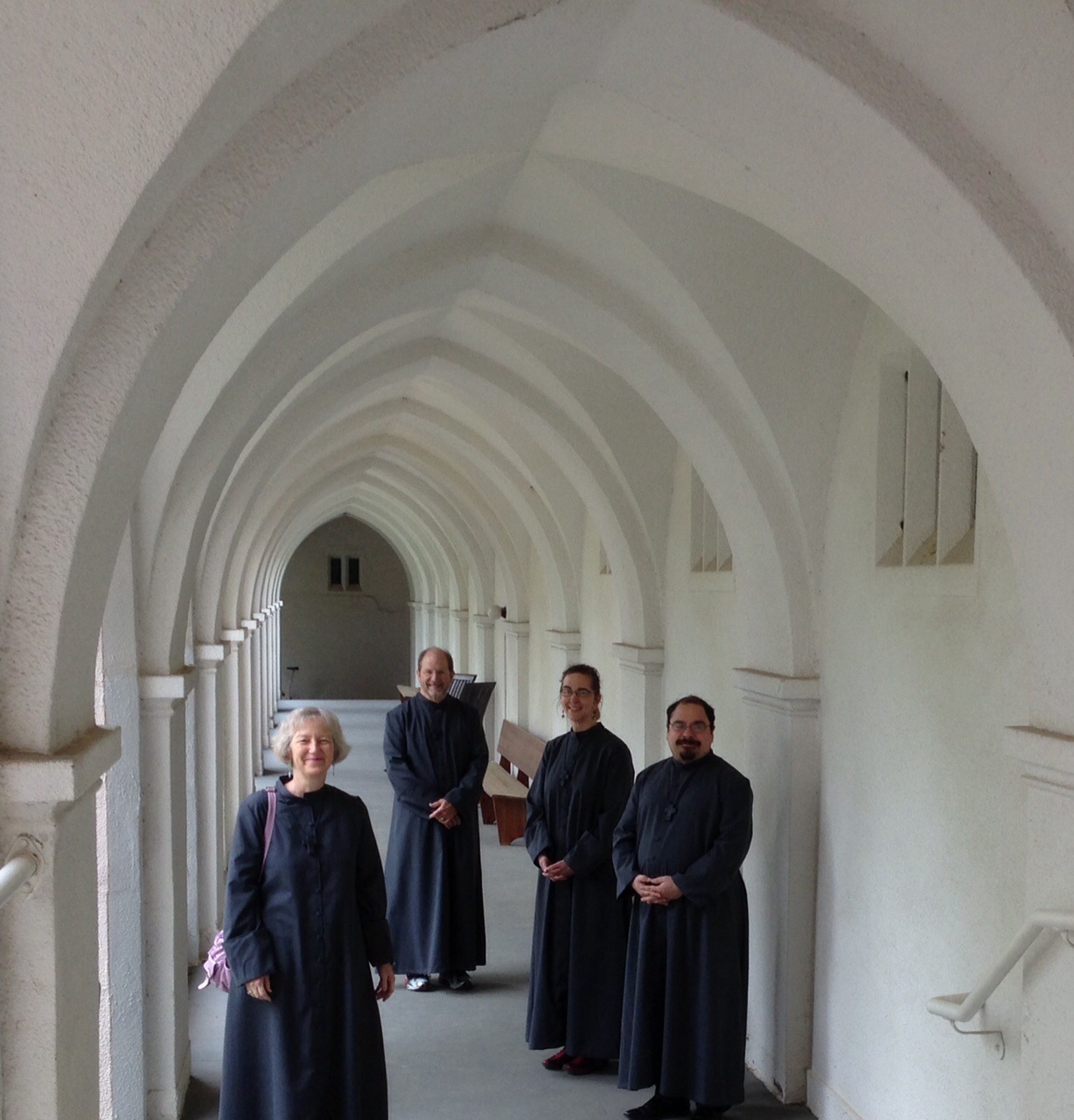 Always
Always
There will always be grumbling in the parish. Always.
I suspect that the reason Saint Benedict wrote so much about grumbling was because there was so much of it in the monastic community. I doubt Benedict ever believed it would stop. I do think he had a few useful ideas about how to contain it and reduce the damage it did. He also seemed to know how to harness the energy of it for the well being of the community. Some containing and a lot of harnessing of energy might be useful for our parish churches.
No grumbling
First and foremost, there must be no word or sign of the evil of grumbling, no manifestation of it for any reason at all. (34:6)
Benedict doesn't see anything good in grumbling. He doesn’t want to see any display of grumbling at all. None, for any reason.[1]
 We have become so accustomed to accommodating all matters of whining and complaining in parish life that we may miss what Benedict is getting at. What does it do to the person engaged in such fussing? What is the impact on the parish community?
We have become so accustomed to accommodating all matters of whining and complaining in parish life that we may miss what Benedict is getting at. What does it do to the person engaged in such fussing? What is the impact on the parish community?
When we are grumbling and bad mouthing others we are undermining the hope within us and others.[2] Our sense of gratitude is lost in irritability and moaning. Our grumbling rises up as our longing for control and certainty slides into frustration and resentment because things are not as we would have them be.
Our hearts are not able to hold gratitude and grumbling at the same time. We must choose which to nurture.
Benedict connects the no grumbling norm with humility. If you need and receive more from the parish than most members accept it in humility. That will allow the parish to be at peace.[3] It’s the same when the saint writes of obedience. Our listening and responding to others in the parish is to be done gladly not grudgingly with grumbling aloud or in your heart.[4] When we serve others in the parish is also a potential occasion for grumbling.
There are of course things the parish leaders can do to nurture people in this no grumbling norm. Many parishes provide a blessing for some roles in the parish. Parish formation processes can explore the issue of grumbling and how it can be off set by humility, prayer and self care.[5]
Leadership that reduces grumbling
I see three things that Benedict might say to the parish’s leaders to reduce grumbling and promote harmony.
The first is that leaders can be direct about the damage grumbling does in the parish community. For that to be effective it has to happen when things are going well. If leaders, especially clergy, begin to teach about the damage after conflict has emerged in the parish — too late! You will be discounted. Worse yet you will have used Benedict’s insights in your own self interest. When we do that we undercut the validity of the message not only during that time period but into the future. The Gospel gets seen as a tool for political maneuvering.
 Second, leaders need to shape the life of the community so there’s no reasonable basis for grumbling. Justifiable grumbling will not arise if the leaders take into account the needs of members in assigning work, providing resources, and a respectful environment. For Benedict that had to do with things like the time of meals, clothing that fit the climate, and the amount of work expected. In the parish church with its coffee hour, occasional meal, and possibly a program to fee the homeless those most involved will want a workable kitchen. Staff members will want reasonable working conditions and fair compensation. The sacristans will want a workable sacristy and adequate funding for liturgy.
Second, leaders need to shape the life of the community so there’s no reasonable basis for grumbling. Justifiable grumbling will not arise if the leaders take into account the needs of members in assigning work, providing resources, and a respectful environment. For Benedict that had to do with things like the time of meals, clothing that fit the climate, and the amount of work expected. In the parish church with its coffee hour, occasional meal, and possibly a program to fee the homeless those most involved will want a workable kitchen. Staff members will want reasonable working conditions and fair compensation. The sacristans will want a workable sacristy and adequate funding for liturgy.
Third, parish leaders need to frequently and regularly take counsel with the wider parish community.
Taking counsel
As it is written: Do everything with counsel and you will not be sorry afterward (Sir 32:24). [The Rule 3:13]
How can we make use of the grumbling? How can the complaints and dreams be put to good use?
 In organization development work there’s a presumption that the best way to deal with people’s grumbling is to hear it, learn from it, and use it. The underlying assumption is that there just might be something useful in the new ideas or the resistance to change.[6] Taking this stance helps leaders be less defensive and anxious. And that in turn is likely to keep the parish’s anxiety in manageable bounds and create trust in the leaders.
In organization development work there’s a presumption that the best way to deal with people’s grumbling is to hear it, learn from it, and use it. The underlying assumption is that there just might be something useful in the new ideas or the resistance to change.[6] Taking this stance helps leaders be less defensive and anxious. And that in turn is likely to keep the parish’s anxiety in manageable bounds and create trust in the leaders.
Before grumbling becomes “grumbling” it’s simply a new feeling and/or thought. It’s an idea that the member believes might be useful. Maybe it’s a concern about some aspect of parish life the person sees as not working very well.
The need is to engage these ideas, hopes, dreams, and concerns in a manner that captures and channels the energy in them for the good of the parish community. The parish needs processes and structures helping the community and its leaders sort out the useful from the not useful, the high priority from the low priority, and the important and developmental from the all the rest.
Much of the grumbling has to do with dissatisfactions and dreams that are of the Spirit. Addressing them builds the community’s sense of competence and trust in its leaders. We need to differentiate this from the chronic grumbler always somewhat aggravated and resentful. The first calls for structures and processes that engage them. The second calls for boundaries and clarity about authority.
Two ways of taking counsel
Saint Benedict had two kinds of consultation in the monastic community—the whole community and the seniors.
The whole community
Benedict could easily bring the whole community together. The monastery was residential. It was a community under vows including obedience to the abbot. The men lived, worked and prayed within the walls of the monastery. In a parish we need to adapt things to the reality of being a dispersed community in which the primary ministry is carried out in the daily lives of members scattered throughout the region. Participation in any aspect of parish life is voluntary. The “demand system”[7] of people’s lives means that the parish is in competition with family, friendships, workplace and civic life for the time, energy and money of its members.[8]
Parishes can have structured, face-to-face conversation among members several times each year. At least one of those conversations needs to be a look at the whole parish system. It’s an opportunity for people to share anything that seems significant to them. The process needs ways to narrow down to the ideas that the community most wants to pursue, allows the rector and/or vestry to exercise their proper role, and moves some items into a pathway for action. There can also be other conversations about more specific matters – how we do hospitality, the incorporation of new members, our engagement with the homeless in the area. These conversations can be 1 ½ to 2 hours. There may also be very brief testing processes used at coffee hour a few times each year.
Benedict’s assumption was that these whole community gatherings were the time in which the younger members would get to have a voice. There are times when the younger members see the better way.[9] This isn’t Benedict pandering to a youth obsessed culture. It’s not a form of paternalizing. The younger person may be offering an idea that solves the community’s problem or opens up a new opportunity. Within his broader call “to listen” this becomes a specific arena in which we are to listen.
The seniors
Benedict also assumes that the long experience and learning of the more senior members provides a wisdom that the leader is to make use of. If the issues are less important the abbot is to take counsel with the seniors only. Wise rectors develop the practice of occasional conversations with people that have served as wardens over the years and with priests in the parish who may be unpaid priest associates or retired clergy in the pews.
Humility
The leaders
There’s a spectrum about a parish’s orientation toward power that has become apparent to me over the years. On the one end are parishes where the leaders seem defensive about their power and authority—retired rectors need to have moved onto another parish, vestries have limited roles in search processes for new rectors, and there is little taking counsel outside the formal centers of power. There are other parishes where the atmosphere is more relaxed and less fearful.
Humility is expressed in taking counsel with others.
The members
Members are to offer their ideas and advice. But they are to do this in humility—not obstinately or in defiance but gracefully. We also see this humility when members accept and use the structures provided for consultation.
Grumbling and taking counsel
The two are interdependent. To the extent the parish engages members in a process of structured, face-to-face consultation it is likely to reduce the most destructive forms of grumbling while also gaining from the open expression of the hopes and concerns of its members.
What can we learn from Benedict?
- The priest and wardens need to invite the parish community to avoid grumbling and explain why in terms of the community’s and the individual’s spiritual health. A caution: doing this when you sense a wave of strong dissatisfaction building probably will backfire.
- The priest and vestry need to consult with the whole parish community, frequently and regularly The priest and the vestry need to bring all important matters to the parish community for it’s counsel.
- The priest needs to informally gather the seniors for consultation with her on less important matters.
- The priest and vestry need to maintain clarity that they are to reflect on the thinking of the community and/or the seniors while reserving decisions to themselves.
- The parish is a microcosm of the Body of Christ, it is a system. If competent consultation takes place there will be less grumbling. If parish leaders effectively manage the polarities of maintaining standards and the need for flexibility in enforcing standards there will be less grumbling and more energy given to the building of the Body.
rag+
[1] First and foremost, there must be no word or sign of the evil of grumbling, no manifestation of it for any reason at all. (The Rule 34:6)
[2] Do not grumble or speak ill of others. Place your hope in God alone. [The Rule 4: 39-41]
[3] Whoever needs less should thank God and not be distressed, but whoever needs more should feel humble because of his weakness, not self-important because of the kindness shown him. In this way all the members will be at peace. [The Rule 34: 3 – 5]
[4] Furthermore, the disciples' obedience must be given gladly, for God loves a cheerful giver (II Cor 9: 7). If a disciple obeys grudgingly and grumbles, not only aloud but also in his heart, then, even though he carries out the order, his action will not be accepted with favor by God, who sees that he is grumbling in his heart. He will have no reward for service of this kind; on the contrary, he will incur punishment for grumbling, unless he changes for the better and makes amends. [The Rule 5: 16 – 19]
[5] The Rule 35: 12 - 18
[6] A PDF on “Resistance to Change.” This isn’t the same thing as the grumbling – taking counsel issue but it is related.
[7] Demand system - We all get caught up in all the “cares and occupations of our life.” In organization development there is an assumption that as individuals and organizations we have a “demand system” — the web of expectations and pressures calling for our energy, time and money. The demands may be external or internal. The person’s workplace, family, friends and community all ask for time, energy and money to be used in their direction. It’s the natural consequence of being in a society. We also have internal hopes and expectations — become a better person, lose weight, make more money or make enough to support the family. Everyone has a regular flow of tasks they must attend to. There’s the occasional crisis, problems to solve and deadlines to meet. There are meals to prepare and bills to pay. We also get caught up in work that just isn’t very important. Most of us have some routines that are busy-work or time wasters. For more on the parish demand system see In Your Holy Spirit: Shaping the Parish Through Spiritual Practice, R. A. Gallagher p. 16
[8] The competition is something that has grown since the Second World War. Before the war the tendency was for the various sectors of a person’s life to engage in mutual accommodation. Over time that has shifted into competition. Many people experience the need to reduce one sector to allow time and energy for another. So we work more and see our family less. Or we drift into a place where we have few close friends, possibly no close friends. Parish churches will serve people more effectively if: 1) we begin with the reality as it is in the culture and 2) we seek ways to offer members ways to live with integrity and humility as they manage the competing forces.
[9] The Rule 3:3
Caesura The web page
A program for parish churches
Vaccinating against conflict
Nurturing healthy relationships
A List of All Postings
 Monday, August 3, 2015 at 9:25AM
Monday, August 3, 2015 at 9:25AM  Benedictine spirituality is a way of life not a parish program.
Benedictine spirituality is a way of life not a parish program. More generally the parish works at training and coaching members to use the Daily Office in some form. There is usually a strong interplay between the parish having a daily public office and significant numbers of members either attending or incorporating the Office into their own practice.
More generally the parish works at training and coaching members to use the Daily Office in some form. There is usually a strong interplay between the parish having a daily public office and significant numbers of members either attending or incorporating the Office into their own practice. The parish has regular opportunities to hear itself with face-to-face, structured conversations on the parish community’s important issues. The norms and climate of the parish discourage grumbling while encouraging people to participate in the opportunities to “take counsel.” And in the formation process members are guided in the ways of humility; ways that include submitting oneself to listening to others in the parish and cooperating with parish leaders.
The parish has regular opportunities to hear itself with face-to-face, structured conversations on the parish community’s important issues. The norms and climate of the parish discourage grumbling while encouraging people to participate in the opportunities to “take counsel.” And in the formation process members are guided in the ways of humility; ways that include submitting oneself to listening to others in the parish and cooperating with parish leaders.